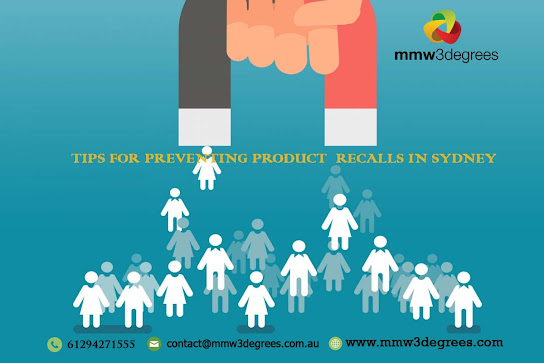Tips for Preventing Product Recalls in Sydney: Ensuring Quality and Safety
A product recall is costly and damaging to a company's reputation. However, with the right recall management strategies, you can significantly reduce the risk of encountering such a situation. This article will explore essential tips for recall management in Sydney, focusing on product recall prevention, its best practices, and training. By following these guidelines, you can ensure that your products are safe, reliable, and well-received by consumers.
Understanding Product Recall Prevention
The key to preventing product recalls lies in rigorous quality control measures. Consistently maintaining high-quality standards throughout your manufacturing process is essential. By implementing strict quality assurance protocols, you can identify potential issues early on and take corrective action before the products reach the market. This minimises the chances of a recall and boosts customer satisfaction and brand loyalty.
Product Recall Best Practices
Adopting product recall best practises is crucial to strengthening your recall prevention efforts. One of the most effective practices is establishing clear communication channels within your organisation. Ensuring that all relevant departments are interconnected and informed of quality issues can streamline the recall management process and enable swift action when necessary.
Regular risk assessments can also help you identify potential hazards and vulnerabilities associated with your products. By proactively addressing these risks, you can implement preventive measures and avoid product defects that could lead to recalls.
Product Recall Training
Practical product recall training prevents recalls and protects your brand's reputation. Your employees are the front line in maintaining product quality and preventing recalls. Providing comprehensive training is vital to ensuring they understand the importance of their roles in the recall management process. This training should cover various aspects, including early warning signs of potential issues, proper handling of defective products, and effective communication during a recall event.
Embracing a Quality-Focused Culture
Promoting a quality-focused culture within your organisation is essential in preventing product recalls. Encourage employees to take ownership of their work and prioritise quality over speed. When every team member understands the significance of their contribution to the overall product quality, it creates a sense of responsibility that can help catch and rectify defects before they escalate into recall-worthy problems.
Continuous Improvement and Innovation
Stagnation can lead to complacency and increased recall risks. Embrace a mindset of continuous improvement and innovation to stay ahead of potential quality issues. Regularly review your manufacturing processes, materials, and technologies to identify areas for improvement. Implementing innovative practices and leveraging advanced technologies can enhance product safety and customer experiences.
Supplier and Partner Relationships
Building solid partnerships with trusted suppliers is like laying a strong foundation for a recall-free future. Your suppliers and partners are crucial to your product's quality and safety. Establishing solid relationships with reliable suppliers ensures you receive high-quality materials and components. Regularly audit your suppliers to verify that they meet your quality standards and share your commitment to recall prevention.
Traceability and Documentation
Maintaining meticulous records and traceability of your products' components is vital in recall management. In the event of a recall, having detailed documentation can expedite the process and help identify the root cause of the issue. Invest in robust tracking systems that enable you to trace every product's journey from raw materials to the finished product.
Engaging with Customer Feedback
Your customers are an invaluable source of product quality and safety feedback. Actively engage with customer reviews, complaints, and suggestions to gain insights into potential issues. Utilise this feedback to make necessary improvements and demonstrate your commitment to providing safe and reliable products.
Conclusion
Preventing product recalls in Sydney requires a comprehensive approach that prioritises quality, communication, and continuous improvement. Following the tips outlined in this article, you can establish a recall-free environment for your business and safeguard your brand's reputation. Remember, recall management starts with robust product recall prevention practices, and thorough training for your team. By adopting these strategies, you can ensure that your products meet the highest safety and quality standards, earning the trust and loyalty of your customers.





Comments
Post a Comment